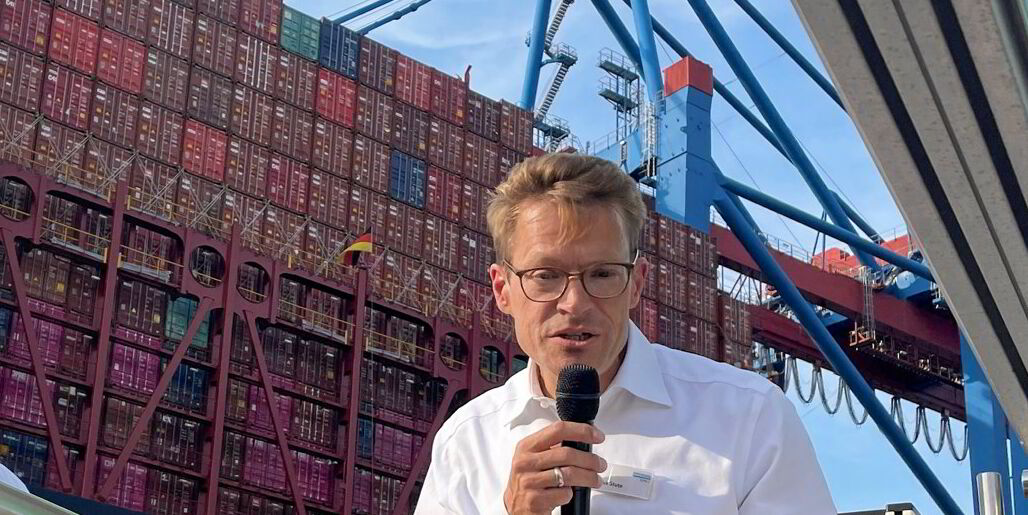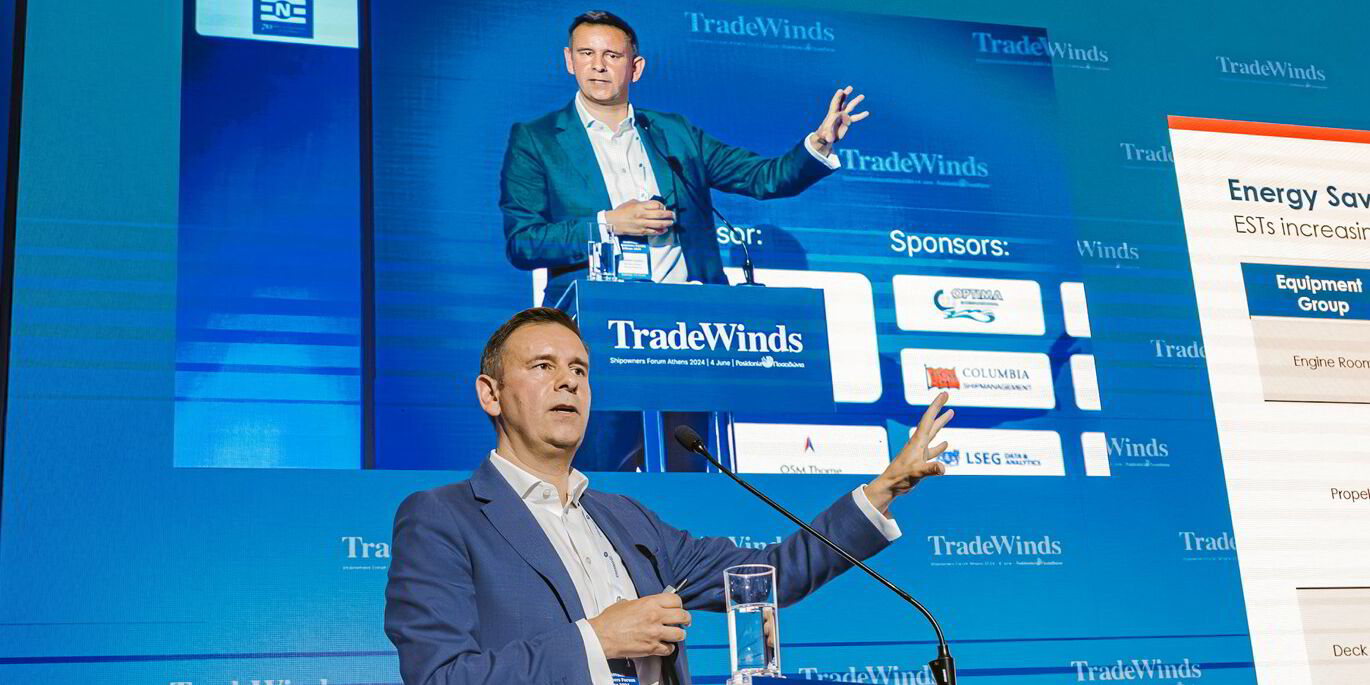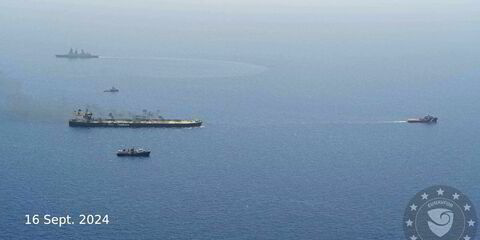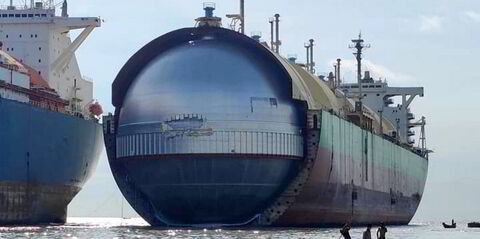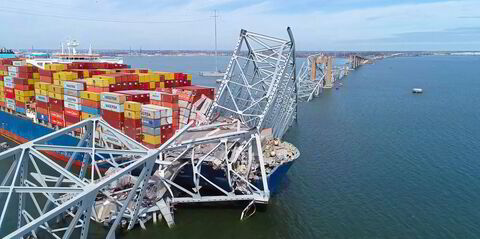A key challenge for European shipowners, particularly the Germans, remains how to reach decarbonisation targets and renew their fleets as newbuilding prices return to near record heights in cash terms.
Rasmus Stute, DNV area manager for Germany, said at the giant SMM Hamburg trade fair: “Now many owners are in a strategic trap. Maybe they waited too long to renew the fleet and now they have to renew the fleet at current prices.
“The scarcity of shipbuilding capacity is a problem, with few slots available, which drives up prices. Labour shortages as well as uncertainties about which future fuel will be used. All these uncertainties add to the price.”
Stute also highlighted, during a DNV boat trip around the Port of Hamburg, that the lower availability of skilled labour is another issue, as being able to use different fuel types such as methanol or ammonia will require additional certification.
“But building new ships will not do the trick alone to decarbonise shipping,” he added, explaining that only 10% of ships out at sea are newbuild at a given time, meaning 90% of the existing fleet needs to be decarbonised on the go — ie, retrofitted.
“The business case will not be strong enough to renew the engine of all ships, so they must put in energy-saving technology in this case,” he said.
Stute said Germany’s shipping cluster consists of a robust “hardware” and “software” side.
“You see two major things. One is a strong supplier’s industry, ie, there is a lot of technology leadership when it comes to the component manufacturers,” he added.
“And on the human side … more than 2,300 ships are being managed out of Germany by German ship managers and owners. Therefore, we have a strong backbone on the human and tech side.”
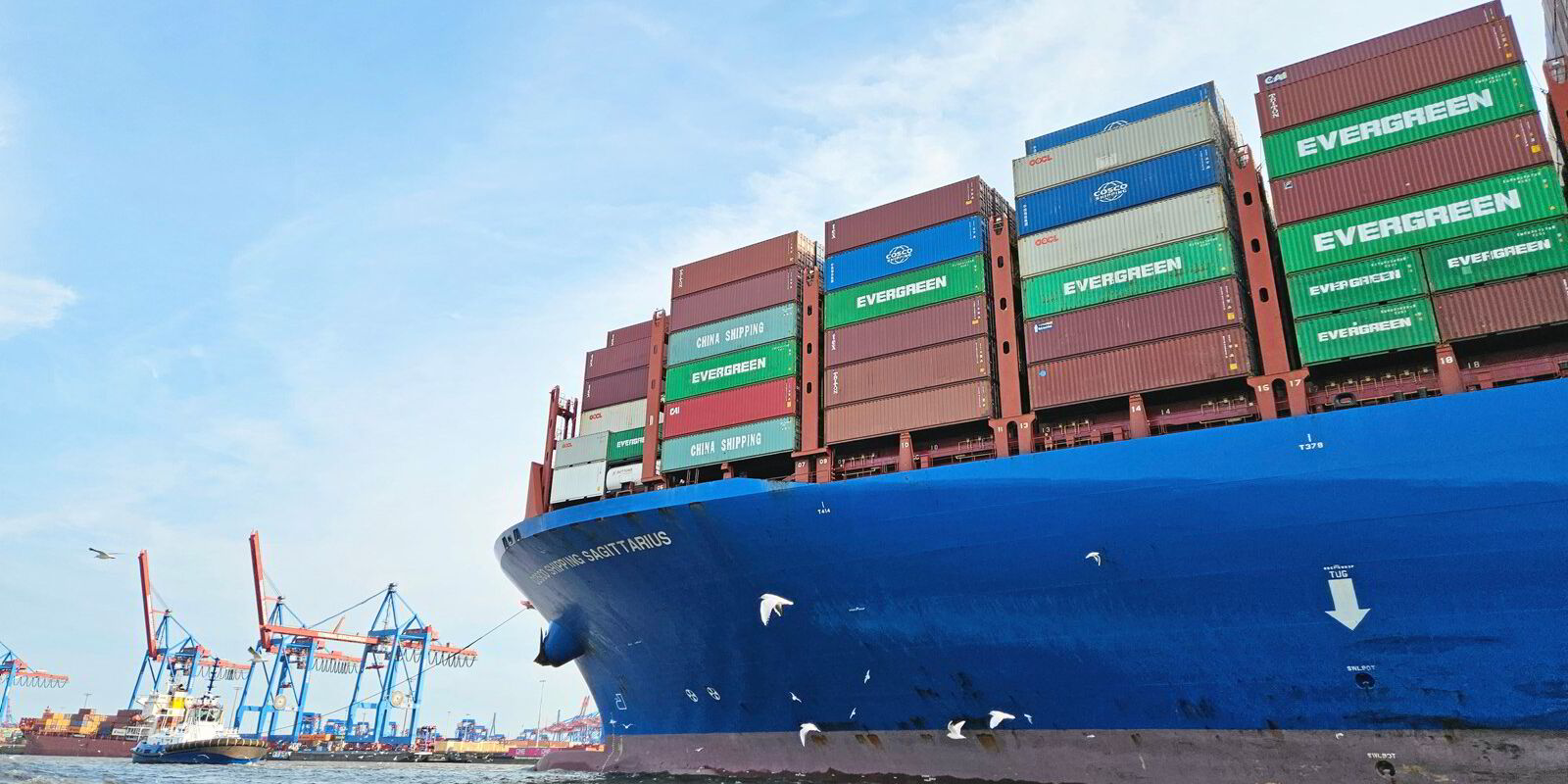
He said most shipping companies in Germany are medium-sized outfits that have found their niche with a special competence profile and are therefore able to maintain their position in the market.
“These companies have mostly invested in new tonnage … mostly built in China. The combination of knowledge and tech is the key to future success for European shipping companies,” he said.
On the cost of decarbonisation, Stute said an even playing field is needed for all participants: “There must be an IMO rule on these emissions and these must be on a global level. Or else they will be to the disadvantage [of] one or the other market player.”
He also believes in a pricing mechanism whereby the money made from the penalties imposed on companies that emit more CO2 emissions should be distributed to those that use greener fuels.
“That way, the ones that are greener get a form of rebate and the ones that emit pay a lot,” he said.
“But at the end of the day, transportation will get more expensive. And that will be passed on in the value chain. So consumers will have to pay the bill. But then it’s our world that we live in, so it’s probably worth it.”
Asked by colleague Norbert Kray, DNV regional manager of greater China, whether he is bullish on new ammonia, Stute replied that it would certainly play an important role further in the future, since it does not emit carbon when it is burned.
“It also requires a specific way it needs to be stored. It’s technically possible. But more expensive,” he said.
“However, it must be an incentive for shipping companies to use ammonia instead of heavy fuel oil. Once the taxation for fuel oil comes up, ammonia will be a more viable option.”
